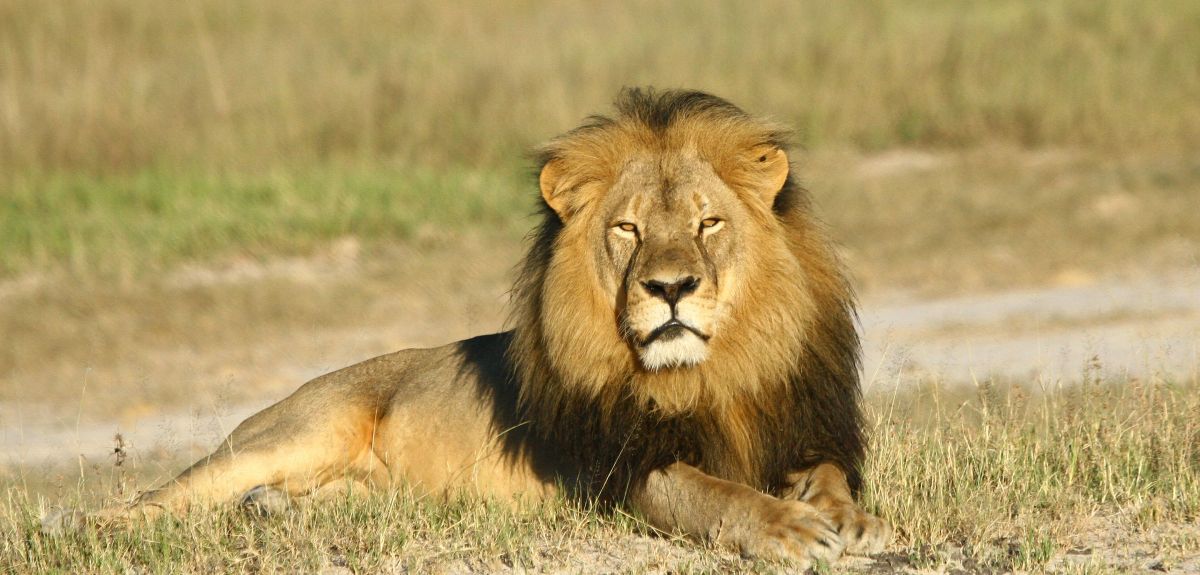
Image credit: WildCRU/Andrew Loveridge
Cecil Summit another key milestone in the lion conservation movement
A little over a year ago, Professor David Macdonald of Oxford University's Wildlife Conservation Research Unit (WildCRU) spoke of his desire to harness the global interest in the killing of Cecil the lion, creating a movement rather than simply a moment.
That journey continues this week with the Cecil Summit, a workshop held in Oxford that will bring together leading figures from across the world to consider future initiatives to preserve the African lion.
The summit will culminate in a free public event on Wednesday 7 September at the Blavatnik School of Government in which anyone interested in conservation will be able to hear the thoughts of top lion experts, as well as a variety of innovative thinkers from fields as diverse as economics, development, international relations and ethics.
The discussion, to be introduced with an illustrated talk by Professor Macdonald, will be chaired by Alan Rusbridger, Principal of Lady Margaret Hall, Oxford and former editor of The Guardian. It will take place from 5pm to 7pm. The summit follows more than a year of sustained interest in the story of Cecil, who was killed by a big game hunter outside Hwange National Park, Zimbabwe on 2 July 2015. Researchers from WildCRU were studying and tracking Cecil and his pride as part of their lion conservation research.
Professor Macdonald, the founding Director of WildCRU, explained the context for the summit: 'Lions, arguably the most iconic species in the world, are doing badly. That understatement captures the shocking fact that wild lions nowadays roam in only 8% of their historic range. Last year, researchers from WildCRU and Panthera, the big cat charity based in New York, published the finding that whereas a hundred years ago it is widely thought there were about 200,000 lions, today there are closer to 20,000.
'Against this distressing but widely ignored background, suddenly everything changed with the killing of Cecil, a fascinating elderly male Zimbabwean lion that WildCRU had been satellite tracking since 2008. Cecil's death prompted unprecedented media interest globally, and so with the world's attention focused on lions, WildCRU and Panthera resolved to hold the Cecil Summit with the purpose of asking whether the morbid trajectory of the lion's fate could be reversed, breaking the mould of conservation by seeking new, innovative approaches from beyond the realms of dedicated field biologists.'
The summit is a joint venture between Oxford and Panthera, whose President Luke Hunter said: 'The tragedy of Cecil's death spurred a unique sea change moment for global awareness of the lion's precarious state. But over a year later, the species is still in freefall in many places. The lion is running out of time.
'We hope that the Cecil Summit's brain trust of conservationists and innovators can spur a new infusion of support for African governments and people working to save the magnificent African lion.'
Speaking from WildCRU's centre at Tubney House near Oxford, Professor Macdonald said: 'In my experience, this summit is unique: we take 30 innovative minds, present them with a new problem, mix them with some conservation specialists, shake and stir, and hope for a breakthrough. It may work, it may not, but at least we will have tried. We'll have grasped the unique Cecil moment and challenged ourselves to find a new way ahead for the Cecil movement.
'Perhaps the unique feature of our approach, forcing inter-disciplinarity between those who know about lions and those who know about delivering high-level change to the human enterprise, will itself become a way ahead in conservation: the Tubney Format!'
He added: 'We believe that the more brains are involved the better, which is why we've arranged a public session in which Alan Rusbridger will lead a conversation with such guests as Rory Stewart, the UK's Minister for International Development; Achim Steiner, Director of the Oxford Martin School and recently head of the United Nations Environment Programme; Wilson Mutinhima, the Director General of Zimbabwe's National Parks; Craig Packer, the world's leading lion biologist; and Tom Kaplan, WildCRU's patron and the greatest benefactor in history to big cat conservation.'
The Cecil Summit's public event will take place at the Blavatnik School of Government from 5pm UK time on Wednesday 7 September. Attendance is free, but booking is required via the Oxford University website. The event will also be live-streamed on WildCRU's YouTube channel.